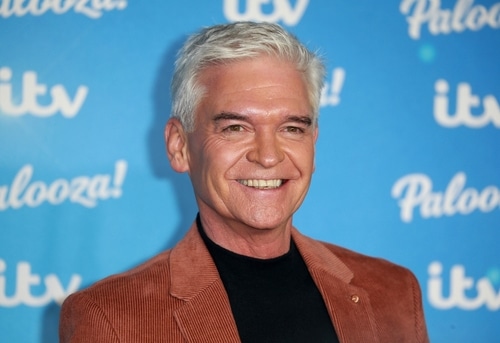The unsavoury Phillip Schofield affair is more than celebrity gossip. It has some useful lessons for all of us. We really do need to be nice on the way up, or there’ll be plenty of ex-colleagues crawling out of the woodwork to give us a good kicking on the way down.
More seriously, it’s a reminder that employers have a duty of care, not just to shareholders, but also to employees. Directors have a fiduciary responsibility to call out inappropriate behaviour, even when done by the golden goose.
In case you didn’t know, it’s been revealed that Phillip Schofield, for three decades the king of UK daytime TV, was removed from the airwaves last week when his affair with a junior runner on the show surfaced. Schofield had met him initially as a 15-year-old theatre school pupil and encouraged him to apply for a job with him when he was old enough. He did, the affair started, with the much older Schofield still married at the time. As Schofield finally admitted after strenuous denials, the affair was ‘unwise but not illegal’.
I’m not writing about the morals of this, that’s not my job. Societal mores have moved on since #MeToo. What many people did or had to put up with back in the day is now totally against the rules, like this toe-curling imbalance of power – whether “consensual” or not.
My interest is in the behaviour of the people in charge. How much did they know? How well did they protect vulnerable people? I’ve no idea what went on. I’m sure there’ll be an investigation. And as Marina Hyde writing in The Guardian points out, it’s not just daytime telly. Almost sixty of our Members of Parliament, several in front-line leadership roles, are facing accusations of sexual misconduct.
This whole sordid tale is a reminder that Directors must face up to their fiduciary (meaning ‘of trust’) responsibilities. They aren’t just there to deliver profits to shareholders. They have a duty of care for employees and the whole organisation.
In big and small businesses, we need higher standards of governance and board effectiveness. I’m not convinced that newly promoted directors, whether in executive or non-executive roles, are adequately informed of their legal and ethical responsibilities. There is no excuse not to know. The buck stops with them. The excuse that hybrid working creates lack of visibility just won’t wash.
Directorship isn’t just about job titles, profits and dividends. It’s about building trust, doing the right thing and not looking the other way.
If you want to elevate trust, governance and performance in your business, here’s details of my highly practical leadership programme.
In four half day sessions I explain how to set high standards and clear goals, then to ensure that every team member has the competence to contribute to those goals. Once Clarity and Competence are achieved, leaders build a Coach-like culture with healthy, easy, two-way feedback and questioning techniques. It facilitates thinking, decision-making, accountability and high performance.

